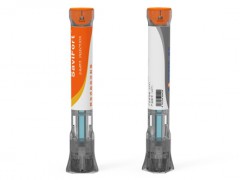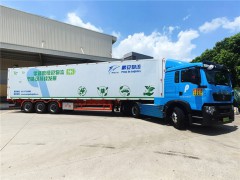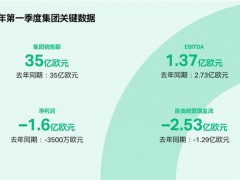據美國鉆井網站報道,英國風險咨詢公司Verisk Maplecroft日前警告稱,全球超過40%的商業可采油氣儲量極易受到氣候變化的影響。
Verisk Maplecroft將其次國家的?陸上?和?海上?的氣候變化暴露指數(Climate Change Exposure Indices)與其姊妹公司伍德麥肯茲的資產水平數據相結合,突出了到本世紀中葉最容易受到極端氣候物理影響的油氣儲量。這項研究結果發現,全球10.5%的商業可采油氣儲量位于氣候變化暴露指數中列為極端風險的地區,而29.5%位于高風險地區。 Verisk Maplecroft指出,受氣候變化威脅的全球油氣總儲量約為6170億桶油當量。
Verisk Maplecroft表示,數據還顯示,陸上油氣作業面臨著氣候變化的“全方位”物理影響,包括海平面上升、風暴、熱浪、洪水和其他極端天氣事件。 另一方面,像墨西哥灣這樣的海上油氣作業,據說很容易受到熱帶氣旋和極端海浪高度的影響。
Verisk Maplecroft指出,中東和北非(MENA)地區面臨風險的可采油氣儲量比例最高。 Verisk Maplecroft表示,在受氣候變化影響較大的地區擁有油氣儲量的公司將面臨更多破壞性事件,開采成本可能會更高,而且需要投資于緩解氣候變化影響的行動。
與氣候相關的供應威脅已開始顯現
在其最新的研究報告中,Verisk Maplecroft概述了與氣候相關的石油和天然氣行業的供應威脅已經開始顯現。Verisk Maplecroft強調,僅在2021年,得克薩斯州的凍結令美國油氣產量降至三年低點,颶風艾達導致墨西哥灣發生創紀錄的55起漏油事件,并造成原油和成品油供應出現歷史性中斷。
Verisk Maplecroft還指出,俄羅斯創紀錄的高溫加速了永久凍土層的融化,這一趨勢已經破壞了嚴重依賴石油和天然氣生產的北部地區40%的建筑和基礎設施。
Verisk Maplecroft的環境分析師羅里·克萊斯比在一份公司聲明中表示:“這類事件將變得更加頻繁和極端,對油氣行業造成更大的沖擊。”
克萊斯比在聲明中補充道,根據氣候相關財務信息披露工作組(TCFD)的建議,如果能源公司想要減輕這些威脅,并消除投資者對其向低碳未來轉型的擔憂,那么識別和披露這些風險對于能源公司來說現在是一種戰略需要 。
颶風艾達
8月27日,美國安全環境執法局(BSEE)首次啟動了颶風應急小組。 BSEE的數據顯示,颶風艾達在其高峰時期,8月29日關閉了墨西哥灣95.65%的石油生產,8月31日關閉了墨西哥灣94.47%的天然氣生產。
9月23日,BSEE發布了關于疏散的最后更新,并關閉了颶風艾達的生產統計數據。 該數據估計,墨西哥灣約有16.18%的石油生產和24.27%的天然氣生產仍處于關閉狀態。 BSEE強調,這相當于美國每天減少29.4414萬桶石油和5.4112億立方英尺天然氣產量。
美國國家海洋和大氣管理局(NOAA) 9月30日表示,有影響的2021年大西洋颶風季節正式結束,產生了21個被命名的風暴,其中7個颶風被劃分為主要颶風。 NOOA指出,美國國家氣象局旗下的氣候預測中心在5月和8月的展望中準確預測了這個“高于平均水平”的颶風季節。
李峻 編譯自 美國鉆井網站
原文如下:
Climate Change Threatens Recoverable Oil Reserves
More than 40 percent of commercially recoverable oil and gas reserves are highly exposed to the effects of climate change, Verisk Maplecroft has warned.
By combining its subnational?onshore?and?offshore?Climate Change Exposure Indices with asset-level data from its sister company Wood Mackenzie, Verisk Maplecroft has highlighted the oil and gas assets most exposed to the physical impacts of climate extremes up to mid-century. The research found that 10.5 percent of global commercially recoverable reserves are found in areas rated as extreme risk in the Climate Change Exposure Indices, while 29.5 percent are in high risk regions. In total, this amounts to around 617 billion barrels equivalent, Verisk Maplecroft noted.
The data shows that onshore oil and gas operations are exposed to the “full range” of the physical impacts of climate change, including sea level rise, storms, heatwaves, flooding and other extreme weather events, according to Verisk Maplecroft. Offshore operations, such as in the Gulf of Mexico, on the other hand, are said to be vulnerable to tropical cyclones and extreme wave heights.
The Middle East and North Africa (MENA) region has the highest proportion of reserves at risk, Verisk Maplecroft pointed out. Companies with reserves in locations highly exposed to the physical impacts of climate change will face more disruptive events, potentially higher costs for extraction and the need to invest in mitigating actions, Verisk Maplecroft said.
Climate Related Supply Threats Already Here
In its latest research note, Verisk Maplecroft outlined that climate-related supply threats to the oil and gas industry have already begun to manifest. The company highlighted that this year alone, a freeze in Texas knocked U.S. oil and gas output to a three-year low and Hurricane Ida caused a record 55 spills in the Gulf of Mexico and created historic disruptions to the supply of both crude oil and refined products.
Verisk Maplecroft also noted that record heat in Russia accelerated the melting of permafrost, which it said is a trend that has damaged 40 percent of buildings and infrastructure in northern regions that are heavily reliant on oil and gas production.
“These types of events are going to become more frequent and more extreme, creating even greater shocks within the industry,” Rory Clisby, an environmental analyst at Verisk Maplecroft, said in a company statement.
“Identifying and disclosing these risks in line with the Task Force on Climate-Related Financial Disclosures (TCFD) recommendations is now a strategic necessity for energy companies if they are to mitigate these threats and offset investor concerns over their transition to a low carbon future,” Clisby added in the statement.
Hurricane Ida
The Bureau of Safety and Environmental Enforcement (BSEE) first activated its hurricane response team due to Hurricane Ida on August 27. At its peak, the hurricane shut in 95.65 percent of Gulf of Mexico oil production on August 29 and 94.47 percent of Gulf of Mexico gas production on August 31, BSEE figures show.
The BSEE released its final update on evacuation and shut in production statistics for Hurricane Ida on September 23. That data estimated that approximately 16.18 percent of oil production and around 24.27 percent of gas production in the Gulf of Mexico remained shut in. This equated to 294,414 barrels of oil per day and 541.12 million cubic feet of gas per day, the BSEE highlighted.
The National Oceanic and Atmospheric Administration (NOAA) announced on November 30 that the active 2021 Atlantic hurricane season had officially concluded, having produced 21 named storms, including seven hurricanes, of which four were classified as major hurricanes. NOOA noted that this “above-average” hurricane season was accurately predicted by its Climate Prediction Center, a division of the National Weather Service, in their May and August outlooks.
免責聲明:本網轉載自其它媒體的文章,目的在于弘揚石化精神,傳遞更多石化信息,并不代表本網贊同其觀點和對其真實性負責,在此我們謹向原作者和原媒體致以敬意。如果您認為本站文章侵犯了您的版權,請與我們聯系,我們將第一時間刪除。







